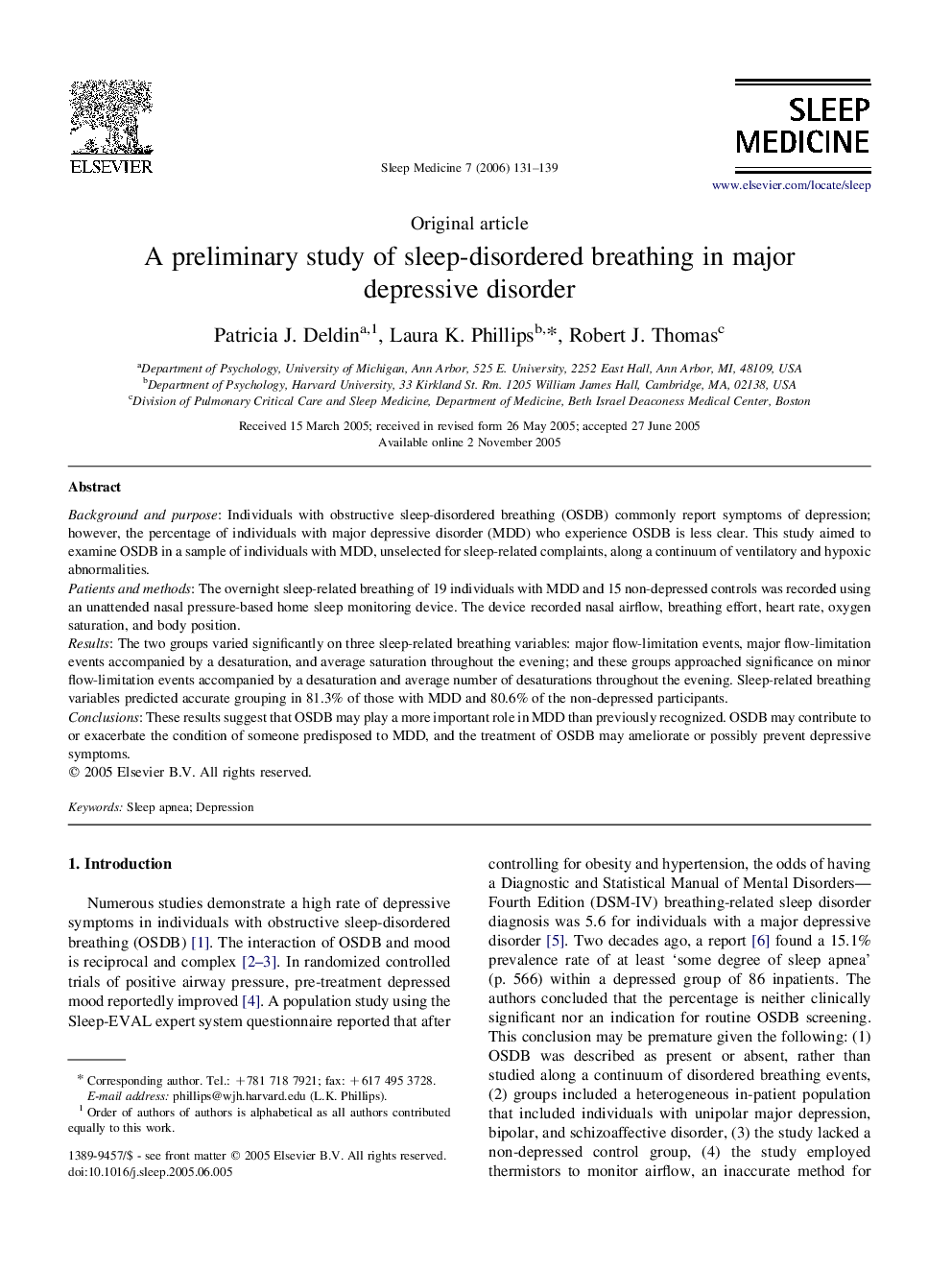| Article ID | Journal | Published Year | Pages | File Type |
|---|---|---|---|---|
| 3177931 | Sleep Medicine | 2006 | 9 Pages |
Background and purposeIndividuals with obstructive sleep-disordered breathing (OSDB) commonly report symptoms of depression; however, the percentage of individuals with major depressive disorder (MDD) who experience OSDB is less clear. This study aimed to examine OSDB in a sample of individuals with MDD, unselected for sleep-related complaints, along a continuum of ventilatory and hypoxic abnormalities.Patients and methodsThe overnight sleep-related breathing of 19 individuals with MDD and 15 non-depressed controls was recorded using an unattended nasal pressure-based home sleep monitoring device. The device recorded nasal airflow, breathing effort, heart rate, oxygen saturation, and body position.ResultsThe two groups varied significantly on three sleep-related breathing variables: major flow-limitation events, major flow-limitation events accompanied by a desaturation, and average saturation throughout the evening; and these groups approached significance on minor flow-limitation events accompanied by a desaturation and average number of desaturations throughout the evening. Sleep-related breathing variables predicted accurate grouping in 81.3% of those with MDD and 80.6% of the non-depressed participants.ConclusionsThese results suggest that OSDB may play a more important role in MDD than previously recognized. OSDB may contribute to or exacerbate the condition of someone predisposed to MDD, and the treatment of OSDB may ameliorate or possibly prevent depressive symptoms.
